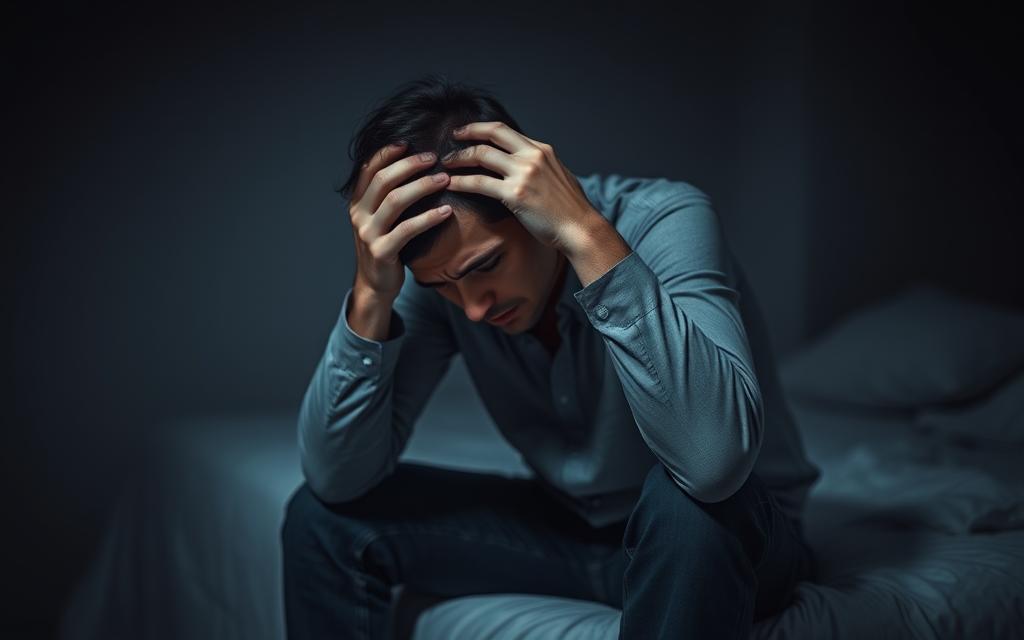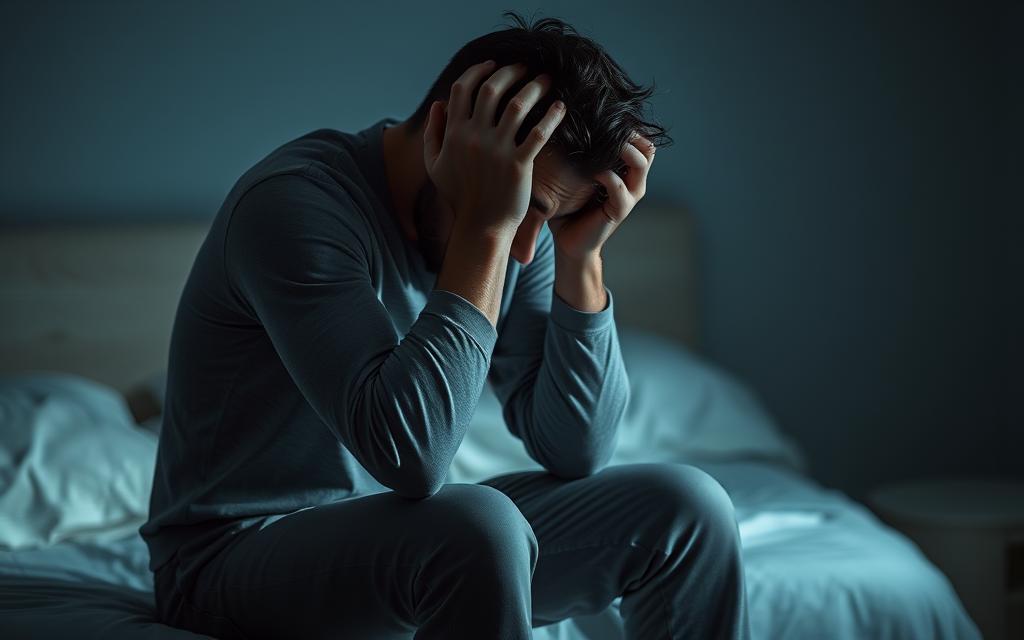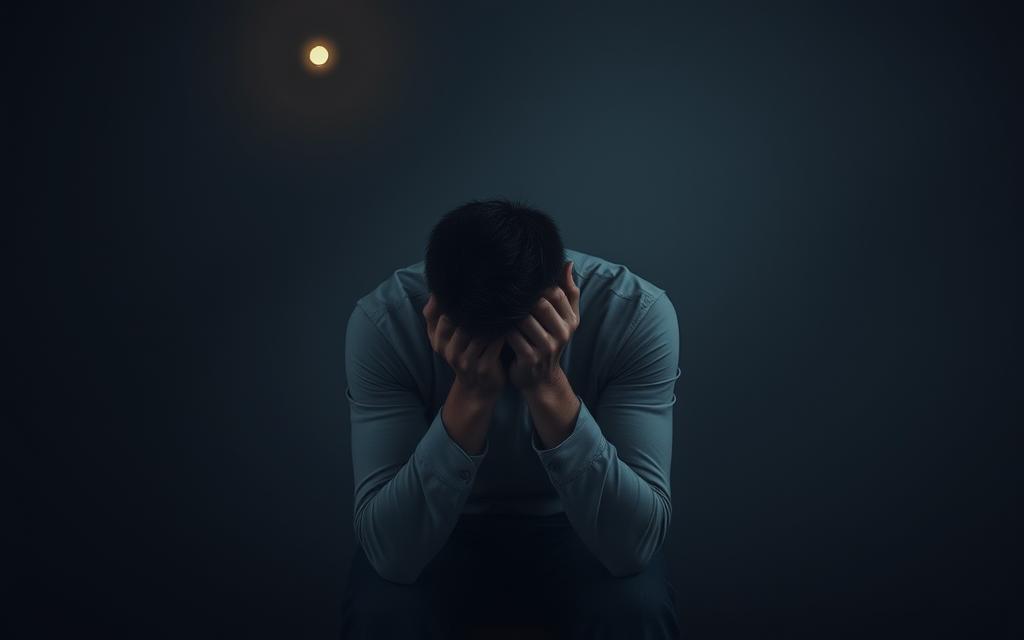Can Anxiety and Depression Cause Erectile Dysfunction? Exploring the Connection
The relationship between mental health and sexual health is complex and deeply intertwined. Anxiety and depression, two of the most common mental health issues, can significantly impact an individual’s sexual performance, potentially leading to erectile dysfunction (ED).
It’s essential to understand that experiencing anxiety or depression doesn’t mean you’re alone; many individuals face similar challenges. These conditions can affect sexual function in various ways, creating a cycle that’s challenging to break.
By exploring the connection between mental health and sexual health, we can better understand how to address these issues and improve overall well-being.
The Psychological Foundations of Erectile Function
Understanding the psychological foundations of erectile function requires exploring how mental health influences sexual performance and overall well-being. The intricate relationship between the brain and sexual response is crucial in this context.
Mental health conditions such as anxiety and depression can significantly impact erectile function. Anxiety, in particular, can lead to performance anxiety, creating a vicious cycle that exacerbates erectile dysfunction (ED). Depression, on the other hand, can alter libido and arousal mechanisms, further complicating sexual health.
How Mental Health Affects Sexual Performance
Mental health plays a pivotal role in sexual performance. Conditions like anxiety and depression can lead to decreased libido, difficulties in achieving arousal, and erectile dysfunction. The psychological burden of these conditions can be overwhelming, affecting not just sexual health but overall quality of life.
The Neurological Pathways Between Brain and Sexual Response
The neurological pathways connecting the brain to sexual response are complex and involve multiple neurotransmitters and hormones. Understanding these pathways is essential for grasping how mental health conditions impact erectile function. The release of neurotransmitters such as dopamine and serotonin plays a crucial role in regulating sexual arousal and response.
| Neurological Component | Role in Sexual Response |
|---|---|
| Dopamine | Regulates pleasure and arousal |
| Serotonin | Influences mood and sexual desire |
Understanding the Link Between Anxiety and Erectile Dysfunction
Understanding how anxiety influences erectile dysfunction is crucial for effective treatment. Anxiety can manifest in various forms, all of which can potentially impact sexual function. The relationship between anxiety and erectile dysfunction (ED) is complex, involving psychological, neurological, and physiological factors.

Performance Anxiety and Its Effects on Sexual Function
Performance anxiety is a common phenomenon where individuals experience apprehension about their sexual performance. This anxiety can lead to a vicious cycle where the fear of not performing well results in erectile dysfunction, which in turn exacerbates the anxiety. Key factors contributing to performance anxiety include:
- Fear of failure
- Pressure to satisfy a partner
- Past experiences of sexual dysfunction
Addressing these factors through therapy or counseling can help alleviate performance anxiety and its impact on erectile function.
Chronic Anxiety Disorders and Their Sexual Manifestations
Chronic anxiety disorders, such as generalized anxiety disorder (GAD) or panic disorder, can have a profound effect on sexual health. These conditions can lead to persistent sexual dysfunction, including erectile dysfunction. The constant state of heightened arousal and stress associated with chronic anxiety can disrupt normal sexual function.
Common sexual manifestations of chronic anxiety disorders include:
- Decreased libido
- Erectile dysfunction
- Difficulty achieving orgasm
Depression and Its Impact on Sexual Health
Depression can profoundly affect an individual’s sexual health, leading to changes in libido and arousal mechanisms. This complex interplay between mental health and sexual function is crucial to understand for effective treatment and management.
The psychological burden of depression often manifests physically, altering an individual’s sexual response. This can result in decreased libido, difficulties with arousal, and overall dissatisfaction with sexual experiences.
How Depression Alters Libido and Arousal Mechanisms
Depression influences libido and arousal through several pathways. Neurologically, depression can affect the brain’s reward system and neurotransmitter balance, which are critical for sexual desire and response. Reduced serotonin levels, often associated with depression, can also impact sexual function.
Furthermore, the emotional toll of depression can lead to decreased interest in activities once enjoyed, including sexual activity. This reduction in libido can strain relationships and further exacerbate feelings of isolation and low self-esteem.
Antidepressants and Their Sexual Side Effects
While antidepressants are a common treatment for depression, they can have sexual side effects, including decreased libido, erectile dysfunction, and delayed orgasm. The impact varies by medication and individual, with some antidepressants having a higher risk of sexual side effects than others.
It’s essential for healthcare providers to discuss these potential side effects with patients to weigh the benefits of treatment against the risks. Adjusting medication or dosage can sometimes mitigate these effects, ensuring that treatment for depression does not unduly compromise sexual health.
The Vicious Cycle: When ED Causes More Anxiety and Depression
When ED occurs, it can trigger a vicious cycle that exacerbates anxiety and depression. This cycle can be challenging to break, as the experience of ED can lead to increased anxiety about future sexual performance, further worsening the condition.

The psychological impact of ED can be significant, leading to feelings of inadequacy and low self-esteem. Men experiencing ED may start to avoid sexual situations due to fear of failure, which can strain relationships and further exacerbate feelings of depression.
Breaking the Psychological Loop of Sexual Performance Anxiety
To break this cycle, it’s essential to address the underlying causes of ED, including sexual performance anxiety. Techniques such as cognitive-behavioral therapy (CBT) can help individuals change their thought patterns and reduce anxiety related to sexual performance. For more information on how certain medications like Finasteride can impact ED, visit Colorado Urologists.
Building Sexual Confidence After ED Episodes
Building sexual confidence is crucial for overcoming ED. This can involve improving communication with one’s partner, seeking professional help, and adopting a healthier lifestyle. By addressing the root causes of ED and working to improve overall sexual health, individuals can break the vicious cycle of anxiety and depression associated with ED.
| Strategies | Description | Benefits |
|---|---|---|
| Cognitive-behavioral therapy (CBT) | Helps change thought patterns related to sexual performance | Reduces anxiety, improves sexual confidence |
| Improved communication | Enhances understanding and support between partners | Strengthens relationships, reduces performance anxiety |
| Healthy lifestyle changes | Includes diet, exercise, and stress management | Improves overall sexual health, reduces ED risk |
Medications and ED: The Finasteride Connection
The potential link between finasteride and erectile dysfunction has raised significant concerns, necessitating a closer examination of its effects on sexual health. Finasteride is widely prescribed for conditions such as benign prostatic hyperplasia and male pattern baldness.
What Is Finasteride and Its Primary Medical Uses
Finasteride is a 5-alpha-reductase inhibitor that works by blocking the conversion of testosterone to dihydrotestosterone (DHT), a hormone involved in the development of benign prostatic hyperplasia and male pattern baldness. Its primary medical uses include treating symptoms of an enlarged prostate and slowing down hair loss in men.
Common Sexual Side Effects During Finasteride Treatment
Some men taking finasteride report experiencing sexual side effects, including decreased libido, erectile dysfunction, and ejaculation disorders. These effects are often reversible upon discontinuation of the medication.
| Sexual Side Effects | Frequency |
|---|---|
| Decreased Libido | Common |
| Erectile Dysfunction | Common |
| Ejaculation Disorders | Less Common |
Understanding Post-Finasteride Syndrome
Post-finasteride syndrome is a condition reported by some patients after discontinuing finasteride, characterized by persistent sexual side effects, including erectile dysfunction, decreased libido, and other symptoms. The exact prevalence and pathophysiology of this syndrome are still being studied.
Key Points to Consider:
- Finasteride’s impact on sexual health can vary among individuals.
- Monitoring sexual side effects during treatment is crucial.
- Post-finasteride syndrome, though not fully understood, is a significant concern for some patients.
What % of People Get Permanent Erectile Dysfunction from Finasteride
Research into finasteride’s side effects has uncovered a potential risk of persistent erectile dysfunction. Finasteride, commonly used to treat benign prostatic hyperplasia and male pattern baldness, has been a subject of interest in clinical studies examining its impact on sexual health.
Clinical Studies and Statistical Evidence
Several clinical studies have investigated the incidence of erectile dysfunction (ED) among finasteride users. A study published in the Journal of Clinical Psychopharmacology found that a significant percentage of men taking finasteride experienced sexual side effects, including ED. Statistical analysis of data from multiple studies indicates that the prevalence of persistent ED varies, but it is a recognized risk.
Key findings from clinical studies:
- A meta-analysis of finasteride studies reported a pooled incidence of ED.
- Some studies suggest that the risk of ED is higher in men with a history of sexual dysfunction.
- The duration of finasteride treatment may also influence the risk of developing ED.
Temporary vs. Permanent ED Cases: The Numbers
Distinguishing between temporary and permanent ED is crucial. While some men may experience ED that resolves after discontinuing finasteride, others may face persistent sexual dysfunction. Research indicates that a small but significant percentage of men experience long-term ED.
Comparative data on ED cases:
| Treatment Outcome | Percentage of Users |
|---|---|
| Temporary ED | X% |
| Permanent ED | Y% |
Risk Factors for Developing Persistent Sexual Dysfunction
Certain factors may increase the risk of developing persistent sexual dysfunction while taking finasteride. These include age, duration of treatment, and pre-existing sexual health issues. Understanding these risk factors can help healthcare providers counsel patients more effectively.
Identified risk factors:
- Age over 40
- History of sexual dysfunction
- Long-term finasteride treatment
Treatment Approaches for Psychological and Medication-Induced ED
Effective treatment of erectile dysfunction (ED) hinges on accurately identifying its cause, be it psychological, related to medication, or a mix of both, and then tailoring the approach accordingly. When ED is linked to psychological factors such as anxiety or depression, or is a side effect of medication like finasteride, a comprehensive treatment plan is crucial.
Therapy Options for Anxiety and Depression-Related ED
Therapy plays a significant role in addressing ED that stems from psychological issues. Cognitive Behavioral Therapy (CBT) is particularly effective in treating performance anxiety and other mental health concerns that contribute to ED. By addressing the underlying psychological factors, individuals can experience significant improvements in their sexual function.
Medical Interventions for Finasteride-Induced ED
For cases of ED induced by finasteride, a medication used to treat benign prostatic hyperplasia and male pattern baldness, medical interventions can offer relief. Consulting a urologist can provide insights into alternative treatments or adjustments to the current medication regimen that may alleviate ED symptoms.
Lifestyle Changes That Support Sexual Health Recovery
Lifestyle modifications are a cornerstone in the recovery from ED, regardless of its cause. Adopting a healthier diet, engaging in regular physical activity, managing stress, and avoiding excessive alcohol consumption can all contribute to improved sexual health. These changes not only support overall well-being but can also enhance the effectiveness of other treatments for ED.
By combining therapy, medical interventions, and lifestyle changes, individuals can adopt a holistic approach to treating ED, addressing both the symptoms and the underlying causes.
Conclusion: Balancing Mental Health and Sexual Wellbeing
Balancing mental health and sexual wellbeing is crucial for overall health, particularly when addressing erectile dysfunction (ED). Anxiety and depression can significantly impact sexual function, creating a vicious cycle that can be challenging to break.
Understanding the link between mental health and ED is essential for effective management. By addressing underlying anxiety and depression, individuals can better manage ED and improve their overall sexual wellbeing.
Achieving balance requires a comprehensive approach that incorporates therapy, lifestyle changes, and medical interventions when necessary. By prioritizing mental health and sexual wellbeing, individuals can work towards regaining control over their sexual health and improving their quality of life.
Maintaining this balance is key to overcoming ED and related mental health concerns, ultimately leading to a healthier and more fulfilling life.
